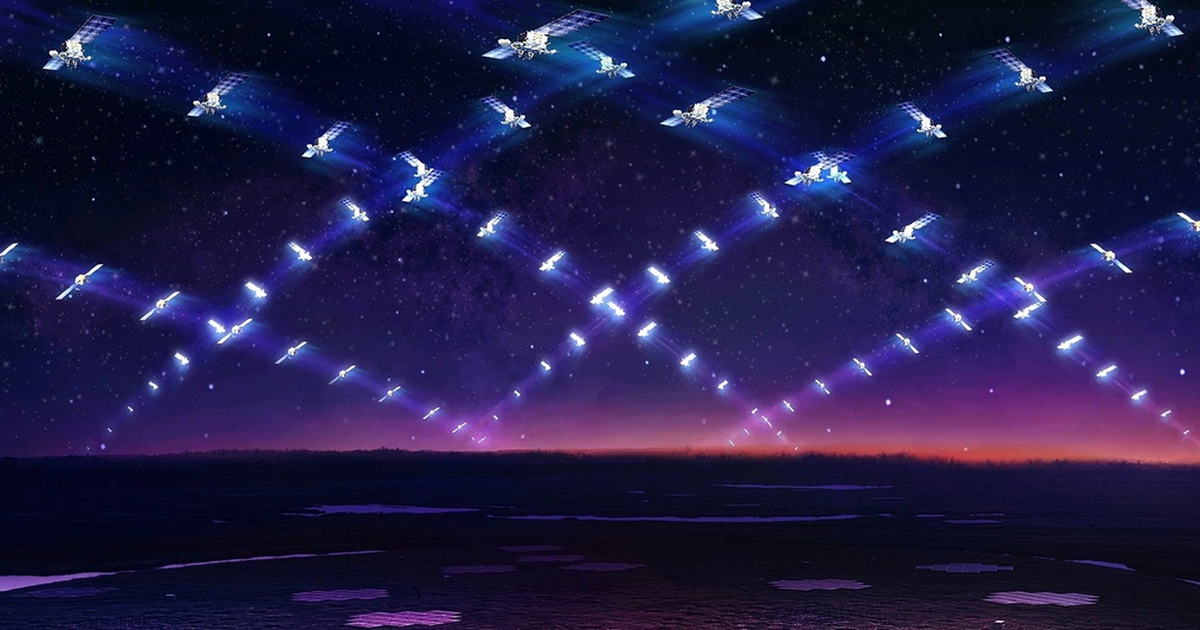Starlink satellites are filtering radio waves to such an extent that it could threaten our ability to study and understand the early universe, they say astronomers.
The interference of the thousands of Starlink satellites in orbit, where they provide a global Internet service, has been a continuous concern for astronomers, who say that the radio emissions of the ship could affect sensitive and weak telescopes. Spacex has worked with astronomers to try to avoid this interference, turning off its internet transmission beams when they fly on key telescopes, but it turns out that this is not enough.
Steven Tingay, from the University of Curtin in Australia and his colleagues, have now tracked the signals of almost 2000 Starlink satellites, using a prototype telescope of the Array-Low-Low Observatory of the square kilometer (SKA-Low) in Australia. This planned collection of more than 100,000 small and linked telescopes is currently under construction to study the early universe, but the researchers found that this goal could be threatened by Starlink signs that affect up to one third of the data
They also discovered that the satellites were emitting signals at two frequency ranges that are protected for astronomy radio by the International Telecommunications Union (ITIIT), so Starlink should not use it. However, it is that the thesis satellite transmissions are not intentional. Leak emissions are 10,000 times stronger than weak radio signals of neutral hydrogen clouds that existed when the first stars began to form, he points out that astronomers hope to observe for the early universe.
“If you observe the intensity of the signal produced by these unwanted emissions, it is not unusual for them to be comparable to the brightest natural radio sources in the sky,” says Tingay. “It’s like taking the strongest sources from heaven and putting a more artificial pile in the sky and making them move a lot, which has a lot of impact, especially in experiments that seek to be ultra sensitive.”
Emissions are probable from onboardics that transmit signals accidentally through the satellite antenna, says Tinggay. Such leaks is not technically illegal, since the UIT regulations only cover intentional emissions, he says.
“No one is breaking any spacex or Starlink rule: this type of emissions are not regulated,” says Tingay. “But it is beginning to become an ITIS discussion on how regulations on this type of broadcast could be introduced.” The itit declined to comment.
“The best way to stop this involuntary broadcast is that the satellites reduce or stop it,” says the member of the Dylan Grigg team, also at the University of Curtin. “Of the operators”, it would be great to have mitigation in the satellite, and Spacex has already done so in optical astronomy. “Starlink caused his satellites to be less reflective to reduce the interference of light.
“These findings are consistent with previous studies that we have done, but more work is needed to have a clearer image of the impact on low frequency observations,” says a SKA-Low spokesman.
Grigg and Tingagay have already shared their results with Spacex and say that the company has opened to a dialogue about the search for a way to reduce emissions. Spacex did not respond to a request for comments.
If Spacex cannot find a solution, researchers must introduce algorithmic solutions to filter polluting radio waves. However, such efforts are still in an “embryonic stage,” says Tinggay, and may require amounts of equivalent computer power or more than necessary to perform the basic processing of astronomical signals of interest in the first place, he says.
Topics:



